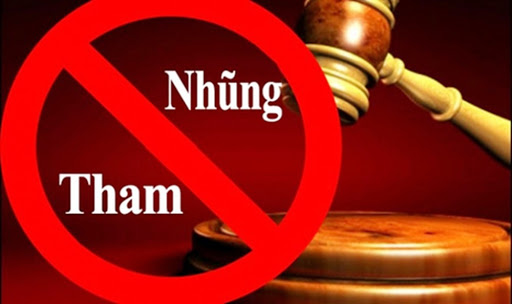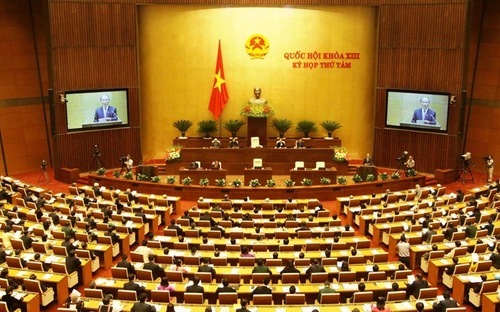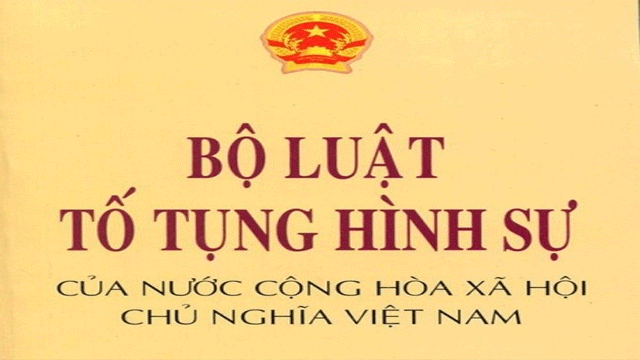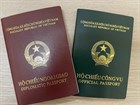On August 3, 2020, the Council of Judges of the Supreme People's Court issued the Draft Resolution Guiding the Application of Provisions of the Criminal Code to Adjudicate Cases of Official Corruption.

08 Circumstances Constituting Offences for Crimes of Corruption and Position in the 2015 Criminal Code (Illustration)
In the Draft Resolution guiding some circumstances constituting offences for crimes of corruption and position in the 2015 Criminal Code, it is as follows:
First, already disciplined as set out in Clause 1 of Article 353, Point a of Clause 1 of Article 354, and Point a of Clause 1 of Article 355 of the Criminal Code applies to cases where a person has previously been disciplined for acts of embezzlement, bribery, or abuse of position to appropriate property according to the law, agency, organization regulations, but commits acts of embezzlement, bribery, or abuse of position to appropriate property within 12 months from the effective date of the disciplinary decision.
In cases where a person's violation has already been disciplined by a competent agency or organization before being subject to criminal proceedings, the Court, when adjudicating, must not consider this as a circumstance of “already disciplined for this act but still violating” according to the corresponding articles of the Criminal Code.
Second, previously convicted of one of the crimes stipulated in Section 1, Chapter XXIII of the 2015 Criminal Code and not yet having the conviction expunged, but then re-offends, as specified in Clause 1 of Article 353, Point a of Clause 1 of Article 354, and Point b of Clause 1 of Article 355 of the Criminal Code, applies to cases where the offender has been convicted of one of the crimes of embezzlement, bribery, abuse of position to appropriate property, exploitation of position for personal gain, and falsification in work. If the criminal record has not been expunged, yet the offender continues to commit acts of embezzlement, bribery, or abuse of position to appropriate property.
When applying the circumstance of “previously convicted of one of the crimes stipulated in Section 1, Chapter XXIII of the Criminal Code and not yet having the conviction expunged but then re-offending”, distinguish between:
- If the defendant's criminal record has been considered as an element constituting the offence of “previously convicted of one of the crimes stipulated in Section 1, Chapter XXIII of the 2015 Criminal Code and not yet having the conviction expunged but then re-offending”, then that criminal record must not be considered for determining recidivism.- If the defendant's criminal record is not considered as an element constituting the offence of “previously convicted of one of the crimes stipulated in Section 1, Chapter XXIII of the 2015 Criminal Code and not yet having the conviction expunged but then re-offending”, then the defendant's criminal record must be considered for determining recidivism.
Third, other material benefits stipulated at Point a of Clause 1 of Article 354, Point a of Clause 1 of Article 358 of the Criminal Code refer to specific valued benefits serving human life needs (e.g., houses, vehicles, tools, equipment, expenses serving human needs) that the offender has obtained or used.
Fourth, intangible benefits stipulated at Point b of Clause 1 of Article 354 of the Criminal Code refer to benefits that are not material (e.g., titles, awards from the State, organizations; facilitating relatives' study abroad, visits; sexual relations; appointments to positions; exam score improvement; promises of graduation, studying, competing, or performing abroad) obtained or used by the offender.
Fifth, abuse of position stipulated at Clause 1 of Article 355 refers to using exceeding the authority, duty, and tasks assigned.
Sixth, exploitation of position stipulated at Clause 1 of Article 358 refers to using one's position and authority to act against the duties and responsibilities assigned.
Seventh, for personal gain stipulated at Clause 1 of Articles 356, 357, and 359, refers to an offender using their position or power to gain unjustified material or intangible benefits.
Eighth, damages caused by the act of corruption stipulated in Articles 353, 354, 355, and 358 of the Criminal Code refer to actual damages caused by the criminal act, excluding the amount of money, property, or other material benefits the offender has or will appropriate.
Example: Nguyen Van A (the Storekeeper of Company B) embezzled anti-epidemic drugs worth 200,000,000 VND, causing all poultry valued at 1,000,000,000 VND of Company B to die due to the lack of anti-epidemic drugs. In this case, the amount A appropriated is determined to be 200,000,000 VND and the actual damage caused by A’s criminal act is 1,000,000,000 VND.
Details can be found at Draft Resolution Providing Guidance on Applying the Provisions of the Criminal Code in Adjudicating Corruption and Position Cases.
Le Hai
 Article table of contents
Article table of contents









